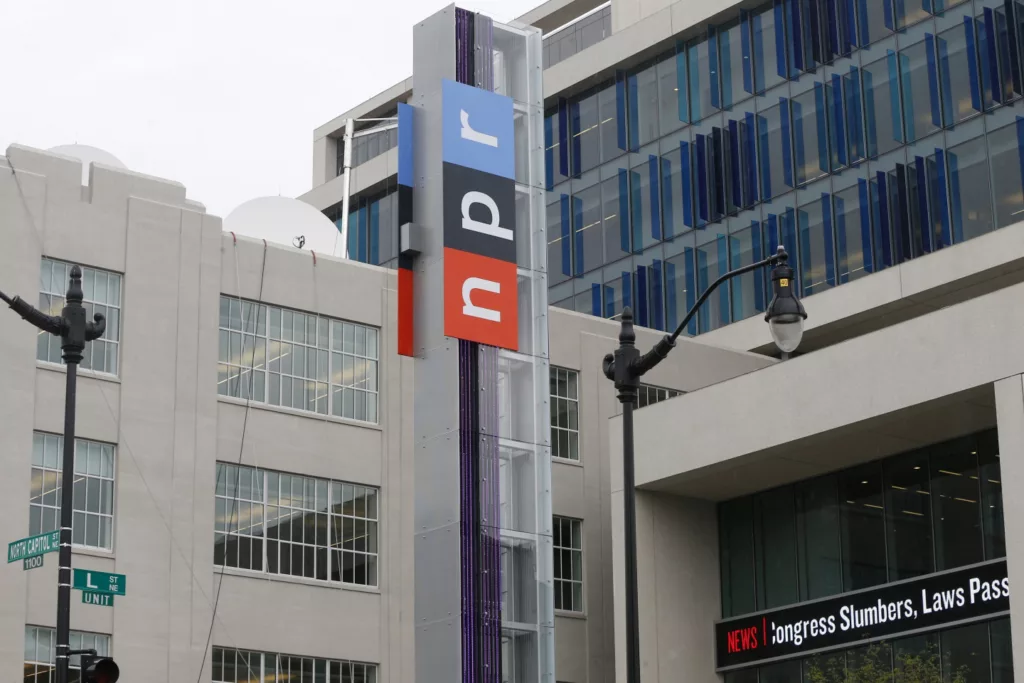Originally published by RealClearPolicy
The freedoms guaranteed by the First Amendment protect speech from government interference. They do not compel taxpayers to fund partisan propaganda. Yet every year, hard-earned tax dollars are funneled into outlets like NPR and PBS, which have increasingly used their platforms to promote radical left-wing agendas.
Just last week, even PBS’s Sesame Street introduced Pride Week to impressionable children–a clear example of ideological messaging disguised as children’s programming. When Congress moves to end this funding, these outlets cry foul, claiming violations of free speech and free press. But the real offense is forcing Americans to subsidize content they fundamentally disagree with.
That’s why the White House’s rescissions package rightly targets wasteful and politically charged programs like NPR and PBS for permanent defunding. These media organizations no longer resemble neutral public broadcasters. Instead, these outlets siphon public funds to push divisive, far-left agendas.
Let’s be clear: NPR and PBS are well-established media giants with robust donor networks, corporate sponsorships, and expansive digital platforms. NPR alone has reported hundreds of millions in revenue in recent years, while PBS benefits from expansive support networks that include major companies like Google and Amazon. With lucrative advertising deals and brand visibility that rivals commercial networks, these outlets are more than capable of standing on their own. In fact, only 1% of NPR’s budget comes directly from the CPB funding the House will vote to rescind this week.
The Corporation for Public Broadcasting (CPB), which distributes federal dollars to NPR and PBS member stations, receives around $500 million in taxpayer funding annually. That may seem like a small figure in the context of Washington’s massive budget, but it represents a larger issue—one of misplaced priorities.
In an era where we are borrowing trillions and paying a staggering interest on our national debt, every dollar matters. Right now, our grandchildren are on track to become indentured servants to a debt that will dwarf our current $37 trillion liability. It’s our responsibility now to do government differently by having the courage to make sweeping reforms, and cutting unnecessary spending is how we begin to preserve the fiscal health of our nation for future generations. We certainly should not be borrowing a billion dollars every two years to fund wildly pro-transgender stories and other left-wing content.
Moreover, the question isn’t whether NPR or PBS should exist. It’s whether they should continue to do so on the public dime.
When PBS and NPR were founded, there were real concerns about access to content on the public airwaves. But the media landscape has changed. Today, Americans have access to limitless content—educational, cultural, and otherwise—on demand, for free, or through voluntary subscription. Public broadcasting is one of many choices, not the only one.
If viewers value the content, they can and do support it voluntarily, as millions already do through local fundraising drives and memberships. There is nothing stopping NPR or PBS from thriving in a competitive media environment. But there is something fundamentally wrong with forcing all taxpayers, regardless of political views or media preferences, to fund it. If we are serious about reducing waste, protecting taxpayers, and restoring trust in government, we must be willing to make choices that reflect both fiscal discipline and fairness.
Republicans have campaigned on making these choices for decades with little to show for it, but circumstances have changed. With President Trump committed to draining the swamp and refocusing our government’s priorities, Congress has a concrete opportunity to back up its words with action.
This first rescissions package should be a softball pitch for Republicans. We can’t miss it.
Congressman Mark Harris represents North Carolina’s 8th District and serves on the House Agriculture, Education and Workforce, and Judiciary Committees.
